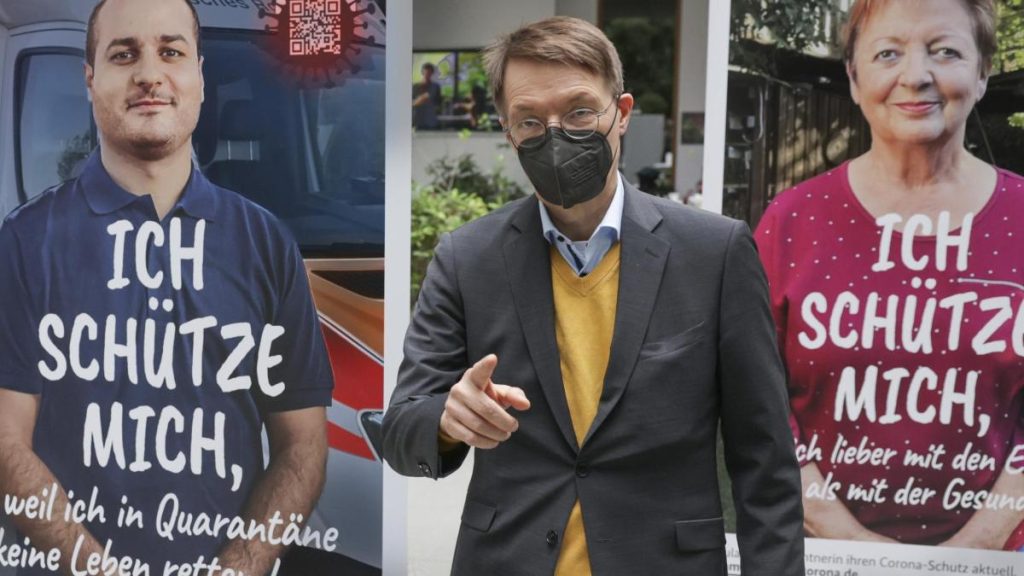The Federal Court of Auditors has criticized the Ministry led by Karl Lauterbach for violations of procurement law and classified material protection in the distribution of the 600,000-euro vaccination campaign “I protect myself”. It is believed that the Ministry itself commissioned the SPD election campaign agency “BrinkertLück” with the campaign, bypassing the competitive tendering process. This decision was made after a long dispute over the allocation of the campaign, which involved 84 citizens promoting infection control measures and vaccines in TV spots and posters. The lack of transparency in the allocation process led to criticism from opposition parties such as the CDU and “Left”, who accused the Ministry of favoritism and lack of clarity.
The Ministry refused to provide information on the subcontracting of “BrinkertLück” despite requests from the parliamentary committee. The Ministry even imposed a high level of confidentiality on the documents to prevent their disclosure. The opposition demanded clarification and evidence of the alleged subcontracting. The lack of transparency and clarity in the allocation process raised concerns about potential misconduct. The Federal Court of Auditors carefully examined the documents and found no evidence of a subcontract agreement between the House agency and “BrinkertLück”. This raised concerns about the Ministry’s compliance with procurement laws and the unnecessary level of secrecy surrounding the documents.
The Federal Court of Auditors instructed the Minister and his department to strictly adhere to procurement regulations in the future and limit the classification of documents as confidential to necessary cases only. The Ministry’s handling of the vaccination campaign allocation was criticized for apparent misconduct and attempts to suppress information. Union politician Tino Sorge, who requested the audit, expressed satisfaction with the findings, stating that Lauterbach had breached procurement laws and obstructed transparency intentionally. The failure of the Ministry to comply with legal procedures and the lack of willingness to provide information created suspicion and raised questions about the Ministry’s accountability and integrity.
The Union faction criticized the coalition government for covering up the Ministry’s actions and hindering attempts to uncover the truth. The lack of cooperation and transparency from the Ministry raised concerns about the government’s commitment to accountability and ethical conduct. The coalition government was accused of enabling the Ministry to avoid scrutiny and accountability, leading to a lack of clarity and confidence in the allocation process. The opposition called for a thorough investigation and accountability to ensure transparency and adherence to legal standards in future procurement processes.
The Ministry, however, maintained that it had followed the correct procedures in awarding the contract to “BrinkertLück” and in classifying the relevant documents. The Ministry disagreed with the Federal Court of Auditors’ assessment and defended its actions as compliant with regulations. The ongoing dispute over the allocation of the vaccination campaign highlighted the challenges and complexities of government procurement processes and the importance of transparency and accountability in public spending. The controversy surrounding the Ministry’s handling of the campaign raised questions about ethical standards and adherence to legal requirements in government contracts and highlighted the need for stronger oversight and control mechanisms to prevent misconduct and ensure accountability.


